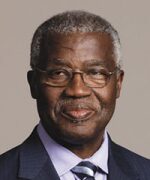
This is a time of great challenge for the oil and gas exploration and production industry. With demand for hydrocarbons increasing and an entire generation of engineers who will retire in the next 5 to 10 years, young professionals (YPs) in our industry are being asked to take on more responsibility sooner in their career. As a result, they have to learn skills faster.
SPE is focused on how to assist YPs in developing all the skills they need—both technical and soft—to succeed and advance in the industry. In 2007, SPE developed a Talent Council to share information, stimulate ideas, and coordinate initiatives aimed at improving the quantity and quality of talent available to the industry. The council is focused on improving and enabling tertiary education; collecting and analyzing data to highlight potential capability/expertise gaps and identify possible solutions; and serving as a focal point in the industry for diversity to assess, foster, and publicize issues/opportunities related to workforce diversity.
The Talent Council sponsored best practices workshops in petroleum engineering education in Kazakhstan and Angola. These sessions brought together university academicians/administrators, ministers of energy, and oil and gas industry professionals to discuss best practices in curriculum development, industry expectations, and how everyone can work together to improve the quality of petroleum engineering graduates.
The council also conducted surveys and produced reports on gender diversity issues, such as the topic of dual-career couples, and will be conducting a survey in early 2013 to identify best practices in talent retention.
To define the skills graduates should possess, SPE’s Talent Council studied university curricula and industry expectations regarding recent graduates’ technical knowledge. The resulting SPE Graduate Technical Knowledge Matrix serves as a reference tool for industry, academia, and students.
SPE also wanted to address the need for soft skills development, so, in 2011, it formed the Soft Skills Council. The idea for the council came from an emerging need in the industry to facilitate the development of interpersonal skills, adding value to the growth of our professionals. The council’s role in this development is to provide venues and facilitate the discussion for professional growth in addition to technical development opportunities. Last year, the council conducted a survey of SPE committees to better understand current competency levels and offer ideas for programs that would benefit competency development but not duplicate current SPE program efforts. Some interesting ideas were generated, including the development of an SPE soft skills competency matrix; continuing education short courses; a lecture program similar to SPE’s Distinguished Lecturer Program; venues for publication of papers; panel discussions; and opportunities for participation in leadership programs in concert with other professional societies.
The Soft Skills Council, in conjunction with the Young Professional Coordinating Committee (YPCC) and the Talent Council, launched a successful event at the 2012 SPE Annual Technical Conference and Exhibition called “Cross-Generational Teams Adding Value to the Workplace.” The workshop gave attendees a chance to explore the balance between technical and soft competencies expected of industry professionals and learn about critical thinking and networking.
Both councils offer valuable information to help you develop your career.
You are already doing the most important thing to help your career—you are a member of SPE. My membership has enabled me to grow in two ways. First, it has helped me grow professionally. Access to technology, participating in conferences, and access to the Journal of Petroleum Technology have helped me throughout my career. Second, it has provided an avenue for social interaction both locally and internationally.
I became a member in a roundabout way. Many of us in Nigeria had joined the industry with differing engineering backgrounds, and we needed an organization to which we could anchor and grow our professional and technical knowledge. When I first came back to Nigeria to work after getting my degree, I found that, although I was a mechanical engineer, I could not register as an engineer because I was practicing as a petroleum engineer. I discussed this with some American-trained friends familiar with SPE, and that is when we came up with the idea of starting a section in Nigeria that would give us a professional affiliation. This is another of the ways SPE broadens its scope and reach throughout the world.
Along with the efforts of SPE’s Talent Council, Soft Skills Council, and YPCC, this helps ensure SPE continues to evolve to better serve the industry and foster the skills development of those embarking on their petroleum industry careers.


